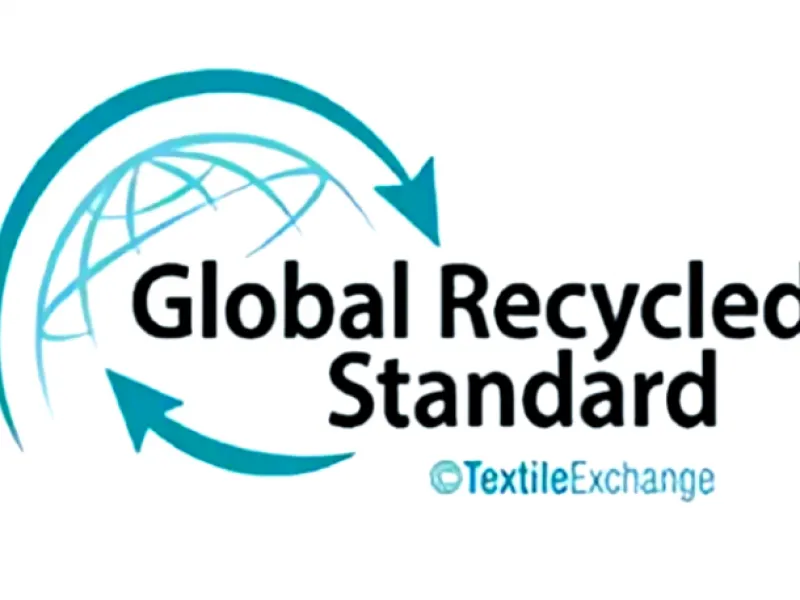What are the commonly used certification certificates in the ribbon industry? A comprehensive analysis of the eight core certifications

I. GRS Certification (Global Recycle Standard)
- Definition and Scope of Application
- The GRS certification (Global Recycled Standard) is a globally recognized environmental textile standard, applicable to webbing products containing more than 20% recycled materials. This certification covers the complete supply chain from raw material procurement to production and sales, emphasizing traceability, environmental protection, and social responsibility.
Core Requirements
• The proportion of recycled materials must be ≥ 20%;
• The production process must comply with environmental protection regulations such as wastewater treatment and chemical control;
• Enterprises must safeguard workers' rights and interests and meet the standards of the International Labour Organization (ILO).
Significance for enterprises
The GRS certification is an important threshold for international brands to purchase recycled webbing. It can enhance the product's premium ability and meet the sustainable development needs of fields such as fast fashion and sportswear.。
II. OEKO-TEX Standard 100 Certification
Definition and Scope of Application
OEKO-TEX certification focuses on the detection of harmful substances in textiles and is applicable to ribbon products that come into direct contact with the skin (such as underwear and clothing accessories) 138.
Core requirements
• The testing items cover more than 300 types of harmful substances such as formaldehyde, heavy metals, and azo dyes;
• The products are classified into four categories according to their uses (for example, baby products need to meet the most stringent Class I standard).
对企业的意义
通过该认证的织带产品可标注“信心纺织品”,增强消费者信任,尤其适用于欧美高端市场。
III. GOTS Certification (Global Organic Textile Standard)
定义与适用范围
GOTS认证针对含70%以上有机天然纤维的织带产品(如有机棉织带),要求全产业链符合生态和社会责任标准15。
核心要求
- 禁用转基因纤维和有害化学品;
- 生产过程需减少水资源消耗及污染排放。
对企业的意义
满足有机纺织品市场需求,适用于母婴、健康生活类品牌合作。
IV. OCS Certification (Organic Content Standard)
定义与适用范围
OCS认证适用于含5%-100%有机原料的织带产品,强调原料来源的可追溯性15。
核心要求
- 需通过第三方机构验证有机材料占比;
- 供应链透明化管理。
与GOTS的区别
OCS对有机成分要求更低(≥5%),更适用于中低端有机产品认证。
V. BCI Certification (Better Cotton Initiative)
定义与适用范围
BCI认证关注棉花种植的可持续性,适用于以BCI棉花为原料的织带产品15。
核心原则
- 减少农药使用、保护水资源及土壤健康;
- 提倡体面劳动。
对企业的意义
符合H&M、Zara等快时尚品牌的采购要求,提升供应链合规性。
VI. ISO System Certification (Quality Management and Environmental Protection)
核心标准
- ISO 9001:质量管理体系,确保产品一致性和客户满意度;
- ISO 14001:环境管理体系,减少生产污染。
对企业的意义
ISO认证是国际贸易的“通行证”,尤其适用于出口型企业。
VII. BSCI Certification (Social Responsibility Audit)
定义与适用范围
BSCI认证评估企业的劳工权益、健康安全及社会责任表现,适用于出口欧洲的织带企业25。
核心要求
- 禁止童工和强迫劳动;
- 保障合理工时与工资。
VIII. Bluesign Certification
- Definition and Scope of Application
- The Bluesign certification integrates environmental, health, and safety standards and is applicable to high-end webbing enterprises that focus on the sustainability of the production process.
Core Requirements
- Optimize resource utilization;
- Control the use of chemicals.
Summary
By obtaining the above certifications, ribbon enterprises can not only meet the procurement needs of international brands, but also enhance their brand image and explore the green market. It is recommended to select a certification combination (such as GRS + OEKO-TEX) based on the product positioning and establish a sound supply chain management system to respond to the new trend of global sustainable development.